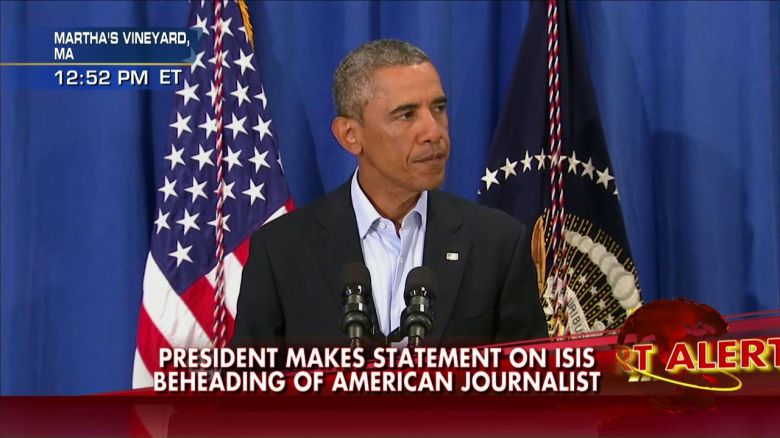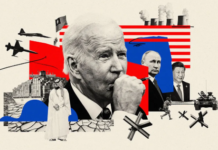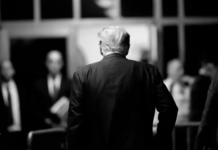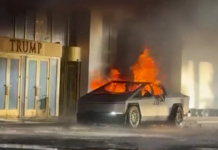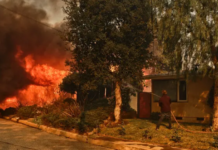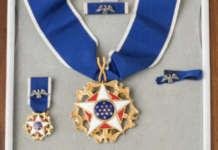2014 has proven to be one of the most tumultuous years in history. Perhaps the most visible issue right now is the success of the Islamic State (IS), a Jihadist militant group operating in Iraq and Syria. Starting in February, the group came to the forefront of affairs in the region, and over this past summer, a new offensive led to the group taking over large swaths of territory in both countries. The group has become known for its brutality, including filming massacres of captured Iraqi and Syrian army soldiers. On August 19th, IS went one step further. In response to American air support to Iraqis and Kurds besieged by the group, a video was uploaded showing the beheading of captured US journalist James Foley. More executions followed, first of Steven Sotloff, another American journalist, and then of British aid worker David Haines.
On September 10, President Obama spoke about these incidents. He promised more air attacks against IS troops, this time expanded to Syria, along with more aid provided to refugees and more arms provided to the Iraqi Army and Kurdish Peshmerga. The President said, “I have made it clear that we will hunt down terrorists who threaten our country, wherever they are. That means I will not hesitate to take action against ISIL in Syria, as well as Iraq. This is a core principle of my presidency: if you threaten America, you will find no safe haven.”
Obama also mentioned that he would be sending 470 more American advisors to Iraq, adding to the forces already there and making them now number about 1,700. He also announced that America would attempt to form and lead a “broad coalition” of Western and Arabic countries to counter the threat posed by Jihadis.
Secretary of State John Kerry left the day before the speech, Tuesday the 9th, to take a trip to the Middle East. His goal is to talk to Sunni leaders in countries like Jordan and Saudi Arabia and to have them join the planned coalition. Secretary of Defense Chuck Hagel and homeland security advisor Lisa Monaco will be also be in the region, with the same goal.
The White House is also trying to get UN approval for use of force against Islamists. Obama said, in his speech to the UN General Assembly on the 24th, that IS only understood “the language of force”.
The President’s announcement has been controversial, with some supporting Obama’s policies, while some hawks in both parties consider it too weak and many doves opposing any military intervention.
Obama sought to reassure doves that “I will not commit you and the rest of our armed forces to fighting another ground war in Iraq.” This came soon after Chairman of the Joint Chiefs of Staff, General Martin Dempsey, said that he’d advise the president to deploy ground troops to Iraq if the situation escalated beyond the point where air attacks could be effective.
On September 18th, Congress passed a bill approving the arming of moderate rebels in Syria, who fight both the Assad Regime’s forces and Islamic State troops. On September 22nd, the United States and its Allies began to bomb IS targets in Syria. Pentagon Press Secretary Rear Admiral John Kirby stated: “I can confirm that U.S. military and partner nation forces are undertaking military action against ISIL terrorists in Syria using a mix of fighter, bomber and Tomahawk Land Attack Missiles.”
The attack was launched by forces from America, Saudi Arabia, the United Arab Emirates (UAE), Jordan, Bahrain and Qatar. This coalition of Arab states involved was considered an unexpected alliance; in the last few weeks, many doubted how devoted to fighting IS some Arab countries actually are. “It’s a remarkable diplomatic achievement. I don’t think it was expected that there would be this much Arab support.” Said Peter Beinart, a political commentator for CNN.
The main target was the city of Raqqa, in the north of Syria. It is considered the capital of Islamic State forces. Several other Syrian cities were hit by attacks, including Deir Ezzor, Al Hasakah, and Abu Kemal. The attacks have been reported to be successful, with many buildings such as barracks, headquarters, storage facilities, and armed and unarmed trucks damaged. According to the Pentagon, an unknown number of IS fighters were killed or wounded in the strikes.
Another Islamic group called Khorasan was hit by strikes. The government claimed that the Al-Qaeda affiliate was plotting to commit attacks on Americans. Khorasan was reported to be made up of militants from a range of countries, including some with Western passports. The obscure outfit reportedly has some of the best bomb-makers in Al-Qaeda working for it. The group’s leader, Muhsin Fadhli, known by his nickname “the Turk” was reportedly killed in the strikes, although this is still far from certain.
On Wednesday the 24th, airstrikes were launched near the Turkish border. The strikes were aimed at eight Kurdish villages currently held by IS fighters. It has not been officially confirmed who launched the strikes, but some residents of the villages say that it was the American-led coalition government. The Syrian government is also a possibility, though they have not conducted operations in the area before. Neither Turkish airspace nor an American airbase in Turkey were used to launch the strikes.On the same day, strikes were launched targeting twelve oil fields in Syria, with the aim of cutting off financial aid to IS.
The White House also released a list of eleven individuals and one charity that they believe is providing funds and recruits to IS. Five more airstrikes were launched along the Syria-Iraq border on the 24th as well. The strikes are expected to go on for a while, with an aim to strike serious blows early on.
In response to queries as to whether Syria’s authoritarian government, headed by Bashar al-Assad was warned of the strikes, the government claimed that it did not warn or coordinate with the Syrian government. But the Syrian government claimed otherwise and showed support for the strikes. The strikes have been controversial among moderate Syrian rebels, who fight both IS and Assad’s forces. These rebels are under-staffed, under-armed, and under-supplied, and some believe that the Obama Administration’s goals should begin with arming and training moderate rebels. “Our goal from the start has been to topple the regime, and then we can fight the Islamic State and other extremists. It was Bashar who carried out all the massacres, and started the whole thing.” Says a rebel commander who goes by a nickname, Abu Hussein. The strikes have also been met with a degree of skepticism among Middle Easterners. The people of some of the countries involved in the strikes may be upset with “Sunni going against Sunni.” said Retired Lt. General Mark Hertling (IS forces are comprised of Sunni Muslims, which are the majority in many countries taking part in the strikes).
Many Arabs are also wary of American intervention following failed campaigns in Libya and Iraq, which began successfully but ended with civil war.
In response to airstrikes, a group inspired by IS in Algeria that called itself Jund al-Khilafah released a video that shows the beheading of French tourist Herve Goudel, 55, who was kidnapped the day after arriving in Algeria. The group said that the reason for this execution was French support in the recent airstrikes, and also French intervention against Islamists in the African country of Mali. French President Francois Hollande said in response that Goudel was killed because of his country’s actions in fighting such a threat to human liberty.
President Obama praised the coalition Tuesday, saying that “We’re going to do what is necessary to take the fight to this terrorist group…America is proud to stand shoulder to shoulder with these nations on behalf of our common security. The strength of this coalition makes clear to the world that this is not America’s fight alone.”
by Alex Marinides

